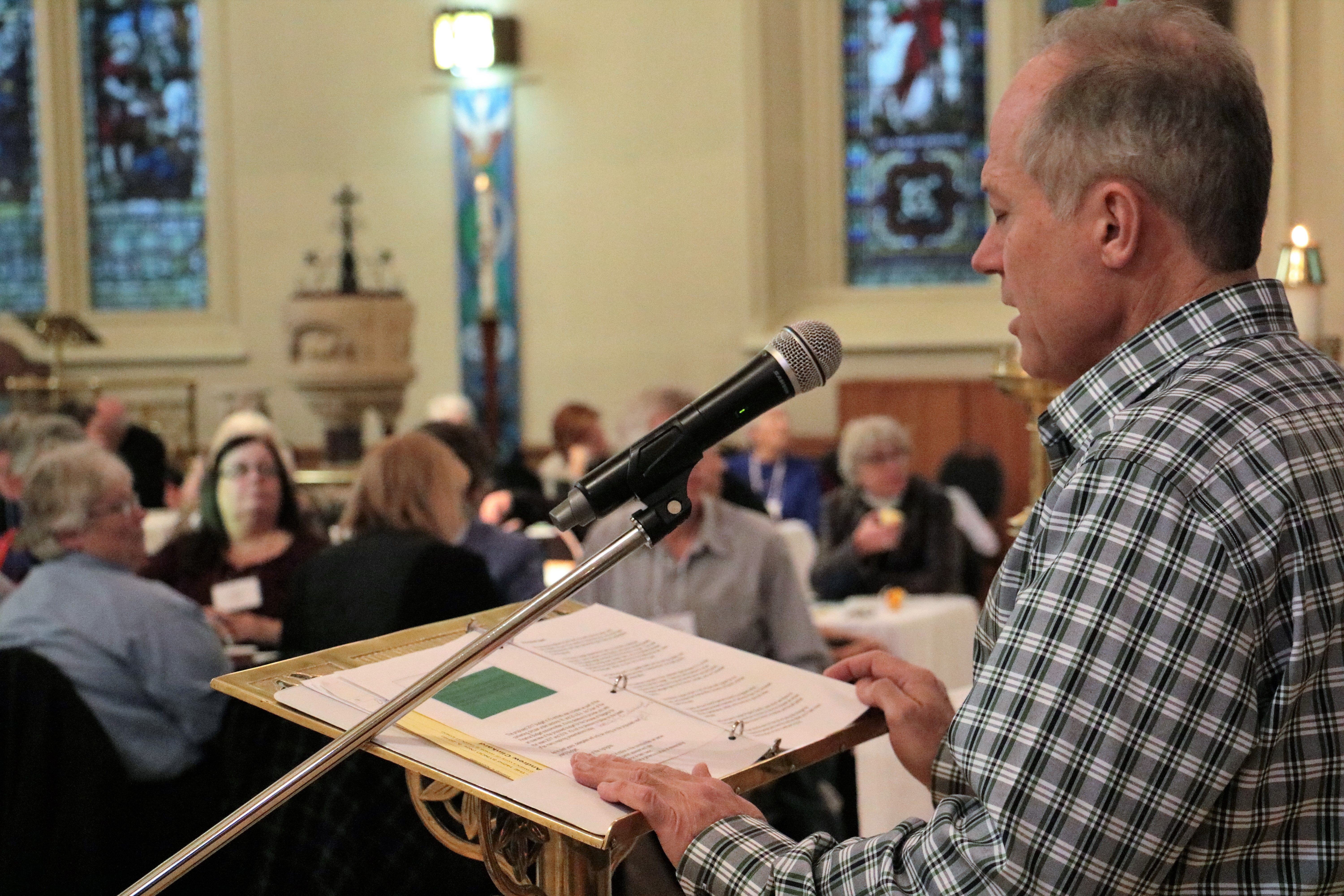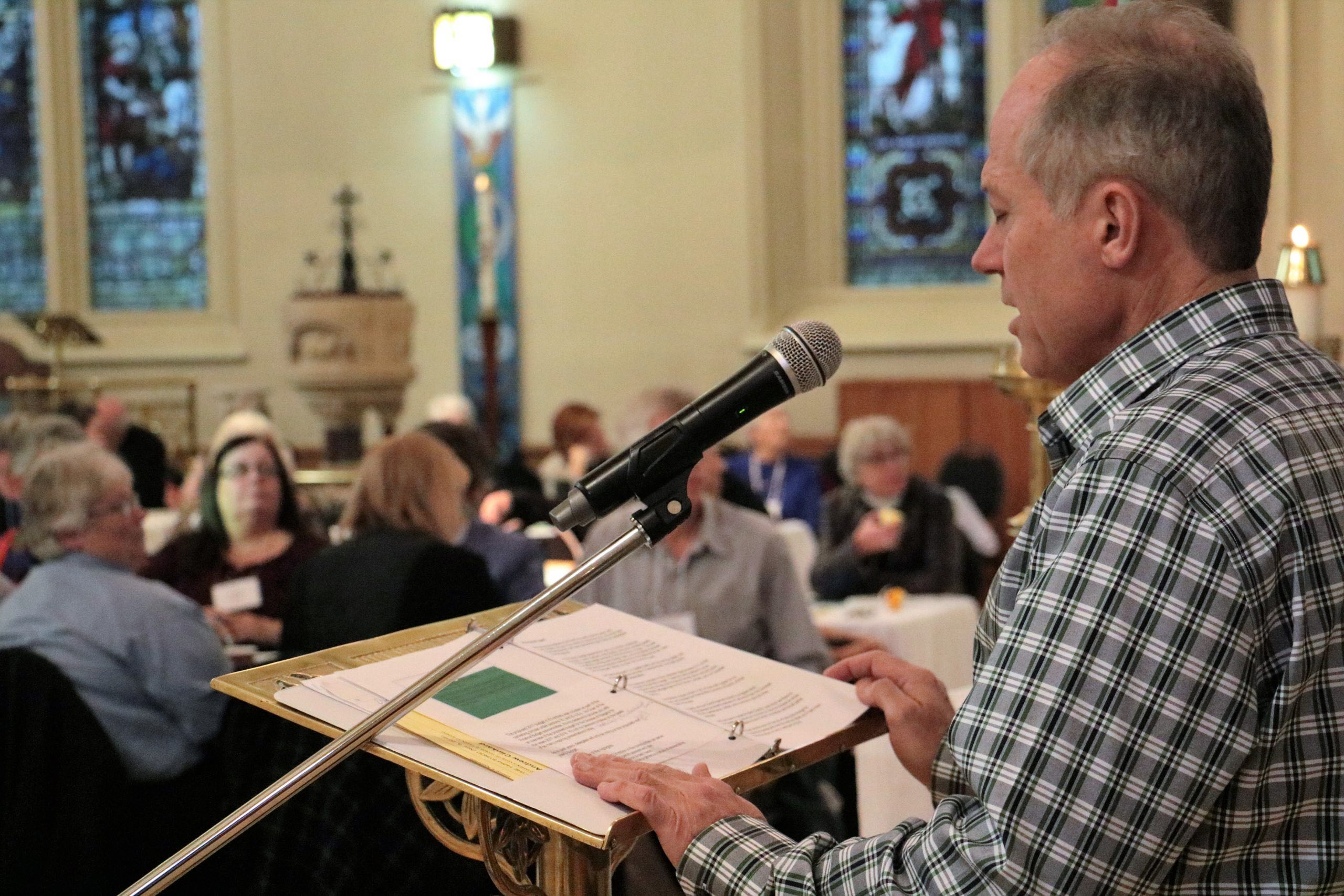
A good news budget with a small surplus on a cash basis is how Andrew Clinkard, Chair of the Finance Budget Committee, described the 2017 budget proposed for Niagara Diocese.
His motion to accept the budget passed nearly unanimously, with at least one Synod delegate voting against.
The 90 parishes of Niagara Diocese were represented at Synod by 81 (80%) clergy and 131 (67%) lay people.
At the November 5th Synod the budget generated very little discussion or debate, probably because it had been thoroughly vetted at two pre-synod meetings held several weeks earlier. Also, it was presented at the end of a busy Saturday when delegates began to drift towards home to prepare for Sunday.
In addition to the small surplus, Andrew identified other budget highlights, such as investing more than $3.4 million in the communities served by the diocese, maintaining the current parish assessment rate and enhancing “our ability to grow a culture of stewardship.”
Describing the budget as pooling resources for the common good and fueling life changes, Andrew allocated the budget expenses into four categories – Core, Core Mission Support, Direct Expenses shared by Programs and Program Specific.
Core expenses (24%) relate to General and Provincial Synods, Lambeth Conference, Diocesan Bishop and Ontario Provincial Commission on Theological Education.
Core Mission Support expenses (28%) centre upon staff support for the core mission, parish interest and interest recovered, restrictive funds and vacant property holdings.
Direct Expenses shared by Programs (20%) include property supervision, Cathedral Place, maintenance, utilities, insurance, Employee Assistance Program, telephones, mailing, IT, equipment, office supplies, audit and legal.
Program Specific expenses (28%) support archives, children’s ministry, program staff, NYC, AWAY, YLTP, Social Justice Co-ordinator and communications, congregational and parish support as well as the Niagara Anglican.
The bulk of the budget ($3.0 million dollars) is financed through the DM&M received from the 90 parishes in Niagara Diocese. The remainder comes from Hands Across Niagara, interest on Trust Funds and investment gains, gifts and bequests, disestablished property funds, property sale gross proceeds and drawings on New Church Development funds.
What God wants and not what we can get is a guiding principle behind the Niagara diocesan budget, concluded Andrew.

Resurrection of Hope in Thundering Waters